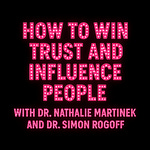I have been very lucky to feature on several therapist podcasts so far this year. While I’m not a therapist, I am a practitioner of many of the relational and therapeutic skills necessary to support people to sense make, have epiphanies, and make beneficial, methodical, planned changes as a coach, facilitator, mediator, reflective practice supervisor, and capacity builder.
Jake Wiskerchen, a licensed marriage and family therapist and counsellor based in Nevada, asked me to join him on his Noggin Notes podcast to talk about narcissism, among other related topics. He has lived many lives, which is reflected in his ethical, confident, and grounded approach to therapy. His experience allows him to provide a thoughtful and reflective perspective on the topics we covered.
I encourage you to listen to our excellent conversation on his Noggin Notes podcast sites rather than here. I downloaded the episode that is available to access the transcript for those of you who like to read them. You can find, subscribe, and provide a review of this episode on:
I am also confident that the content in this conversation is useful for any therapist and especially for trainees and newbie therapists. Jake describes several common practice challenges therapists encounter and we talk through how to prevent and address them. Share this with your therapist peers!
After my little rant about the myth of authenticity below, you will also see an AI-generated summary of all the topics and key points that we covered with time stamps, if you want to zone in on specific topics of interest. I also include a link to Jake’s practice if you’re interested in getting in touch and booking sessions with him. He’s a skilled listener, gentle bs challenger, and is a much needed asset to help individuals, couples, and families learn to relate better to each other. Josh Slocum, you got a mention in there too. Your work as the Cluster B whisperer is so important right now and into the future.
The myth of authenticity at work
One of the things Jake and I discussed was the notion of authenticity in a workplace context. Bringing your whole self to work might sound like a call for authenticity, but in reality it often means walking into the work culture unprotected. Trusting your institution or leaders to have your back without knowing if they are truly trustworthy is a risk that can leave you exposed in ways you might not anticipate.
Workplaces are not designed to accommodate the full spectrum of personal expression, nor should they be - we have norms for a reason. However, workplaces tend to function within predefined norms that reward strategic behaviour over authenticity, unless it’s the correct organisational psychologist guru-approved Authenticity™. Those who assume they can be fully open at work without consequences will find themselves blindsided when their words or actions are used against them.
The only people who can afford to be truly authentic in these settings are often narcissists or those in power, because they either set the cultural norms and or believe they’re above them. Everyone else must be intentional about what they reveal and to whom, ensuring they remain protected in an environment that does not prioritise their wellbeing.
Strategic adaptation is not deception. It’s recognising when it’s safe to trust and when it’s not, and with whom. Expressing unfiltered opinions or even solicited, constructive feedback to a narcissistic leader can backfire, whereas framing ideas in ways that align with their interests allows for influence without unnecessary risk. While functional, psychologically safe teams can exist within dysfunctional institutions, they require strong leadership to create a protected space where authenticity is possible and relevant. These spaces take time and effort to cultivate by everyone involved. Assuming these cultures exist by default is naive and leaves employees vulnerable.
Ultimately, hierarchical institutions reward performance and alignment with their goals, not personal expression. Those who fail to compartmentalise their personal and professional selves risk being exposed and unprotected in a toxic system. Instead of striving for authenticity at work, the smarter approach is to balance integrity with strategic self-presentation to maximise impact while ensuring protection from unnecessary exposure.
What’s your opinion and/or experience of bringing your whole self to work? Slayed or backfired?
Summary of Narcissism, Burnout, and Psychological Safety: Cracking the Code with Nathalie Martinek episode
00:00 - 03:00 | Introduction & background
Host Jake Wiskerchen introduces Nathalie Martinek and her work.
Discussion on how they connected via Substack (Hacking Narcissism).
Overview of Nathalie’s transition from science to human behaviour and coaching.
03:01 - 10:30 | Defining narcissism & its relational nature
Narcissism beyond DSM definitions: a relational, systemic issue.
How narcissistic behaviours stem from insecurity, shame, and survival mechanisms.
The role of enablers in maintaining narcissistic dynamics.
10:31 - 20:00 | Narcissism in workplaces & institutions
How hierarchies create and sustain narcissistic leadership.
The impact of workplace culture on relational dynamics.
Career survival strategies in toxic environments.
20:01 - 30:00 | Personal & professional costs of toxicity
The emotional toll of moral distress in academia and corporate settings.
Identity loss and instability after leaving a toxic workplace.
Why dysfunctional institutions resist change.
30:01 - 40:00 | Authenticity vs. strategic adaptation
The myth of full authenticity in hierarchical institutions.
Why narcissists can "be themselves" while others must conform.
The necessity of strategic behavior in toxic systems.
40:01 - 50:00 | Facilitation, validation & navigating group dynamics
The difference between acknowledgment and validation.
The dangers of reinforcing unhelpful beliefs in group settings.
Managing difficult personalities in therapeutic and professional spaces.
50:01 - 60:00 | Shame, boundaries & breaking dysfunctional patterns
Understanding shame as a moral compass and relational tool.
Strategies for setting boundaries without excessive guilt.
How family dynamics influence professional and personal relationships.
60:01 - 70:00 | Coaching & ethical client relationships
The ethical dilemma of creating client dependency.
How to "fire" a client when progress isn’t happening.
Encouraging self-sufficiency in coaching and therapy.
70:01 - 80:00 | Power dynamics & The role of the helper
How therapists and coaches can become enmeshed in unhealthy dynamics.
Recognising when professionals unconsciously take on submissive roles.
The risks of countertransference and maintaining professional boundaries.
80:01 - 90:00 | Closing thoughts & where to find Nathalie’s work
Reflection on the conversation’s themes.
Where to follow Nathalie: Hacking Narcissism on Substack & her website.
Final thoughts on relational dynamics and mental wellness.
You can find Jake at Zephyr Wellness in Nevada and wherever else he practices in the USA and on his excellent podcast Noggin Notes. You can also find him here on Substack.
Thank you for listening!
Hack narcissism and support my work
I believe that a common threat to our individual and collective thriving is an addiction to power and control. This addiction fuels and is fuelled by greed - the desire to accumulate and control resources in social, information (and attention), economic, ecological, geographical and political systems.
While activists focus on fighting macro issues, I believe that activism also needs to focus on the micro issues - the narcissistic traits that pollute relationships between you and I, and between each other, without contributing to existing injustice. It’s not as exciting as fighting the Big Baddies yet hacking, resisting, overriding and deprogramming our tendencies to control others that also manifest as our macro issues is my full-time job.
I’m dedicated to helping people understand all the ways narcissistic traits infiltrate and taint our interpersonal, professional, organisational and political relationships, and provide strategies for narcissism hackers to fight back and find peace.
Here’s how you can help.
Order my book: The Little Book of Assertiveness: Speak up with confidence
Support my work:
through a Substack subscription
by sharing my work with your loved ones and networks
by citing my work in your presentations and posts
by inviting me to speak, deliver training or consult for your organisation











